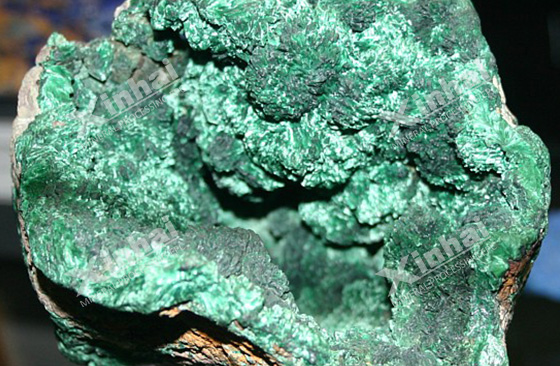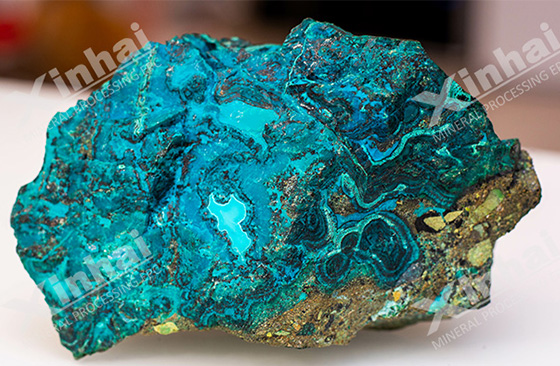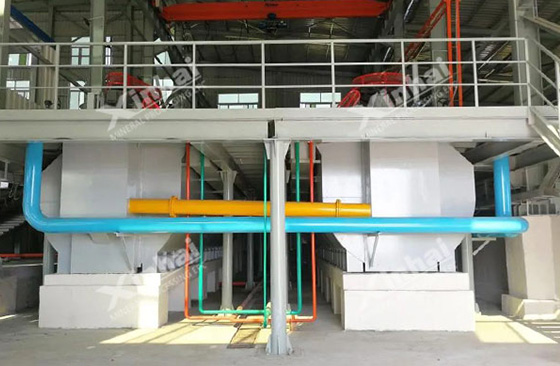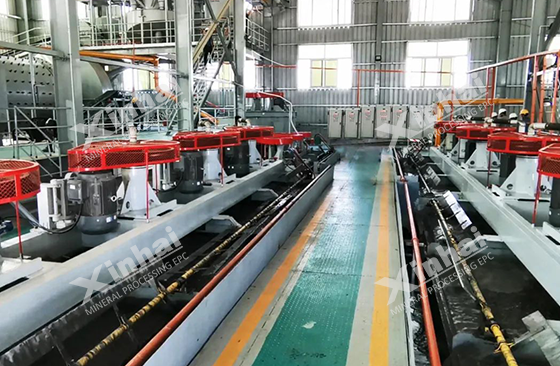
Copper flotation is a crucial step in the copper ore beneficiation process. It separates copper minerals from other impurities, thereby improving copper recovery and concentrate grade. However, the efficiency of the flotation process is affected by many factors, including ore composition, ore particle size distribution, mineral surface properties, ore oxidation degree, paragenetic minerals and the selection of separation process. Understanding and optimizing these factors is crucial to improving flotation effects and the utilization of mineral resources. The following will introduce the impact of these factors on copper flotation.

The main copper minerals in copper ore are chalcopyrite, chalcocite, bornite, etc. The surface properties and flotation properties of these copper minerals are different, which makes flotation difficult. Among them, chalcopyrite has good hydrophilicity but poor flotation properties, so it is necessary to use strong oxidants or surfactants to treat it, which can improve the flotation properties of such ores. Although chalcocite has good natural flotation properties, it is easy to oxidize. The flotation properties of oxidized chalcocite decrease, so some protective measures need to be taken during copper flotation.
The particle size distribution of copper ore mainly affects the flotation recovery rate and product grade. Generally speaking, the flotation recovery rate of coarse-grained copper ore is higher but the concentrate grade is lower, while the flotation recovery rate of fine-grained copper ore is lower but the product grade is higher. In order to optimize the ore particle size distribution, crushing, screening or grinding can be used to improve the efficiency of copper flotation.

The surface properties of copper ore, such as hydrophilicity and surface potential, will interact with flotation reagents. In actual production, the type and dosage of flotation reagents can be selected and adjusted to regulate the properties of the mineral surface, thereby improving the selectivity of flotation. The use of surfactants and oxidants can effectively change the properties of the mineral surface and improve copper flotation.
Oxidation of copper ore will affect the interaction between flotation reagents and minerals, which in turn will affect the flotation effect. The recovery rate of copper flotation with a higher degree of oxidation is lower, and special flotation processes or pretreatment measures are required. Adjusting the type and dosage of flotation reagents or using pre-reduction treatment can also improve the flotation recovery rate of oxidized copper ore.

Common associated minerals of copper ore include iron minerals, silicate minerals, etc. The flotation behavior of these paragenetic minerals will affect the flotation effect of copper minerals. Because the surface properties of paragenetic minerals and copper minerals are different, it is necessary to select flotation agents with differential adsorption for copper flotation. Both stage flotation and mixed flotation processes can effectively separate paragenetic minerals and improve the flotation recovery rate of copper minerals.
Common copper ore separation processes include gravity separation, magnetic separation, flotation and combined separation processes. Different treatment processes have different effects when applied to different stages. For example, gravity separation and magnetic separation can remove gangue minerals in copper ore in advance and improve the quality of raw materials entering the flotation process, while gravity-flotation combined process and magnetic-flotation combined process can effectively improve the comprehensive utilization value of copper ore. Therefore, by choosing a reasonable separation process, the flotation process load can be reduced while improving the flotation efficiency and concentrate grade.

In summary, various factors interact with each other during the copper flotation process and jointly determine the final beneficiation effect. Through in-depth analysis of the influence of mineral composition, particle size distribution, mineral surface properties, oxidation degree, paragenetic minerals and separation process, a scientific basis can be provided for actual production, thereby optimizing the flotation process and improving the copper recovery rate and concentrate grade. Reasonable control and adjustment of these factors can not only improve the economic benefits of copper mines, but also promote the sustainable use of resources and further promote the development of the mining industry.
To find out more about our products and solutions, please fill out the form below and one of our experts will get back to you shortly.